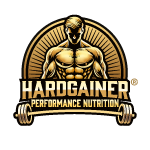Progressive Overload
Training Hypertrophy Progression
Progress follows tension. Progress your stimulus deliberately, keep technique stable, respect recovery.
Notice
This page provides context and guardrails. It is not individual medical, nutrition, or training advice. Suitability and tolerance are individual; for pre-existing conditions, pregnancy/lactation, or medication, consult qualified professionals before making changes.
Term and System Context
Core PrinciplePerformance Development
Progressive overload is the planned increase of training stimulus to provoke additional hypertrophy. The primary driver is mechanical tension; metabolic stress and muscle damage & RBE are contextual tools.
- Frame: Train within MEV–MRV, synced to the SRA cycle.
- Control: Objective performance + subjective markers (RIR, RPE).
- Efficiency: Maximize SFR, avoid junk volume.
Matching deep-dive: Myth #2 – “More training = more muscle”.
Mechanisms of Progression
- Load: More weight at the same rep range.
- Repetitions: More reps at the same load.
- Sets: Volume ladder within MEV–MRV (MAV near the top of adaptation).
- Density: Same work in less time (trim rests sparingly).
- Technical tension: better range, control, target-muscle tension.
- Frequency: More sessions if SRA allows.
If you have pain, injuries or medical conditions, seek medical clearance before increasing loads or density.
Control Logic: MEV–MRV × SRA × RIR
- Enter near MEV: start conservatively; lock in technique.
- Micro-progress: per week add +1–2 reps or +2.5–5% load when RIR ≥2 and performance is stable.
- MRV signals: reps/load drop at same RIR, persistent fatigue, technique drift → reduce volume, plan a deload; if needed fall back to MV.
- Metrics: performance trend or 1RM estimates; pump is secondary.
Practice: 6-Week Protocol (Example)
| Week | Intensity | Volume | RIR | Action |
|---|---|---|---|---|
| 1 | ~70–75% 1RM | MEV | 2–3 | Calibrate technique, set baselines |
| 2 | +2.5% load or +1 rep/set | MEV+1 | 2 | Small increase, crisp execution |
| 3 | +2.5% load | MEV+1–2 | 1–2 | Prioritize tension, keep density steady |
| 4 | hold | MEV+2 (if markers are ok) | 1–2 | Increase only if performance ↑ and joints feel good |
| 5 | +2.5–5% load | ≈ same | 1 | Set top sets, keep back-offs precise |
| 6 | −(5–10%) | −(30–50%) | 3–4 | Deload: shed fatigue, polish technique |
Orientation, not a prescription. Adjust to individual MRV, exercise selection, and day-to-day readiness.
Common Mistakes
- Junk volume: sets without clear tension/performance targets → fatigue ↑, stimulus ↓ (learn more).
- Only chasing load: technique breaks, target muscle loses tension → illusory progress.
- Misusing density: cutting rests too hard → quality sinks, recovery collapses.
- No deloads: chronic fatigue hides true plateaus.
Hardgainer Training Plan Generator
No guesswork: setup → volume → RIR – structured, visualized and built for hardgainers.- Setup selection: Barbell/dumbbell, home gym or commercial gym.
- Split & frequency: Muscle-group and weekly structure in a system.
- Training level: From beginner to advanced – clear guardrails.
- Volume per muscle: Sets within the MEV–MAV range.
- RIR/RPE targets: Set hardness per exercise under control.
- SFR focus: Exercise selection with a strong stimulus-to-fatigue ratio.
- CNS & fatigue gauge: Load overview at a glance.
- Weekly overview: Structured plan instead of random hard sets.
- Guides & glossary: Embedded in the Training Volume & Fatigue System.
Framework values → fine-tune via progression, biofeedback and 4–8 week cycles.
“More Training = More Muscle”
False. Growth = Stimulus × Recovery — not sets × ego. Quality beats quantity: prioritize mechanical tension near failure (RIR 1–2), stable technique, and planned progression within the SRA window. Work from MEV → MAV, avoid junk volume, deload as needed. Read more: Myth #2.
This wasn’t “just reading”. This was commitment.
If you want progress, you need a system. Get the Hardgainer Mission Briefing™ and execute one thing cleanly every week.
By signing up, you’ll receive the download link to Hardgainer Hacks™ (PDF) and the Hardgainer Mission Briefing™ via email. You can unsubscribe at any time. Read our privacy policy here.
Further Reading and Resources
Directly Related
- Hypertrophy • Mechanical Tension • Muscle Pump
- RIR • RPE • 1RM
- SRA • Deload
- MEV • MRV • MAV • MV
- SFR • Junk Volume
Notice
Descriptive information for orientation — not a treatment, diet or training prescription. Individual differences and possible contraindications apply.
© Hardgainer Performance Nutrition® • Glossary • Updated: Dec 21, 2025

